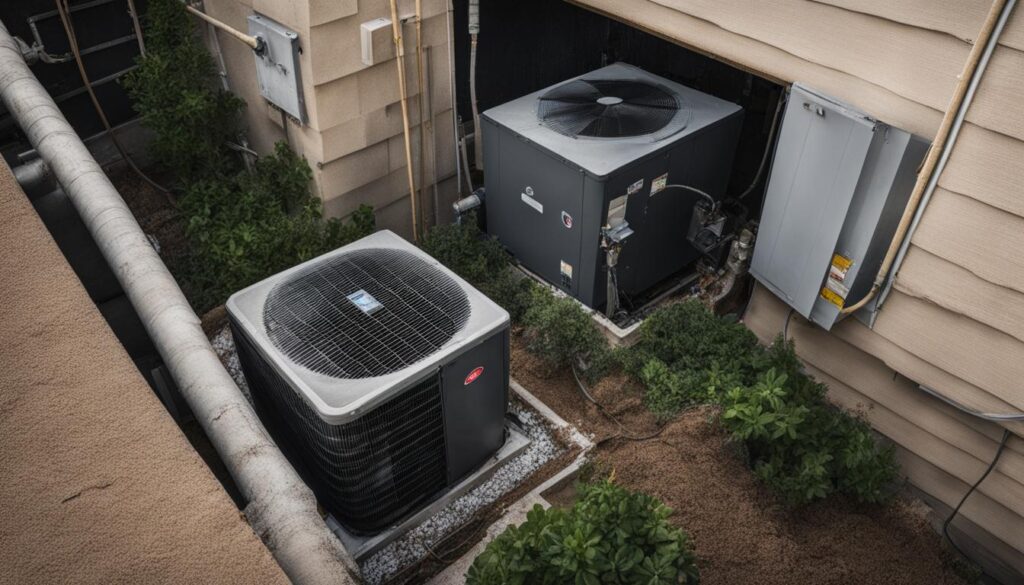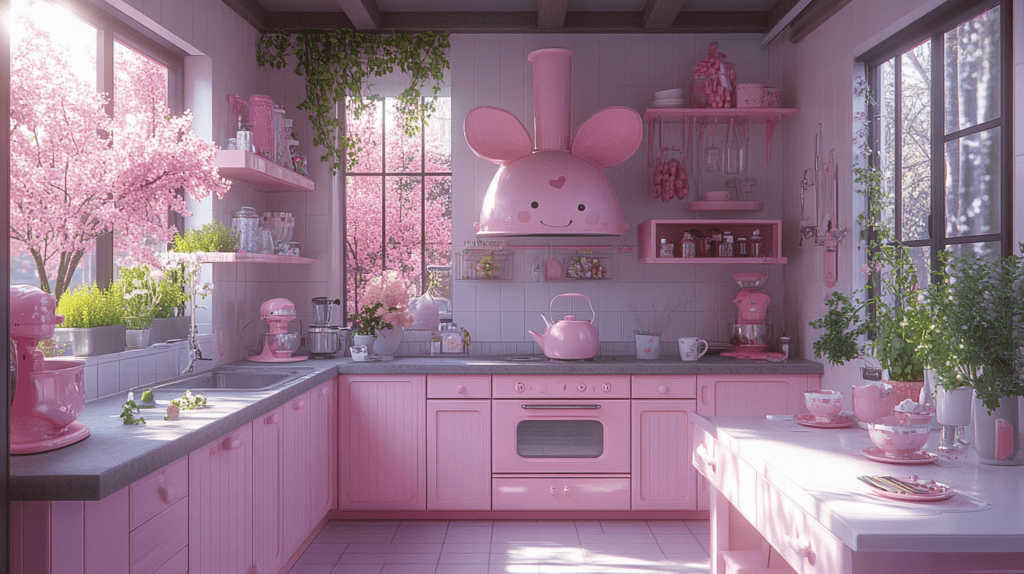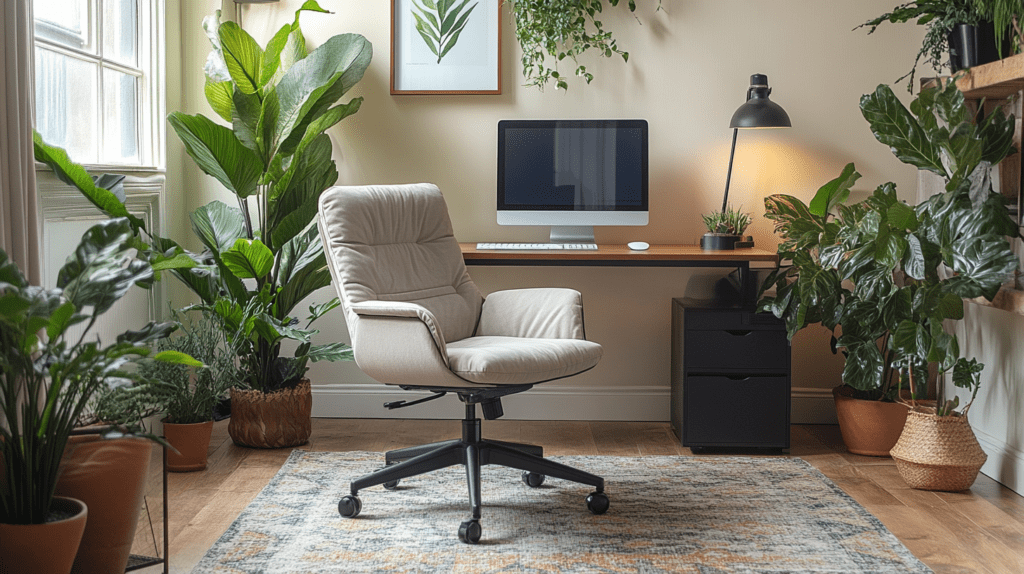If your air conditioner is struggling to reach temperatures below 80 degrees, it can be frustrating and uncomfortable, especially during hot summer months. However, there are several common issues that may be causing the problem. By understanding and addressing these issues, you can improve your AC’s performance and ensure a cooler and more comfortable indoor environment.
Key Takeaways:
- Common issues that can prevent an AC from cooling below 80 degrees include a dirty air filter, a blocked condenser, a refrigerant leak, an undersized AC, leaky ducts, or an older AC.
- A dirty air filter can restrict airflow and reduce cooling efficiency. Regularly check and clean or replace the filter as needed.
- A blocked condenser can impede heat release, leading to reduced cooling capacity. Clear any debris and clean the condenser coils for optimal performance.
- A refrigerant leak can cause low refrigerant levels, resulting in limited cooling capabilities. Contact a professional to locate and repair the leak, and recharge the system if necessary.
- An undersized AC may struggle to effectively cool your home. Have a professional perform a Manual J calculation to determine the appropriate AC size for your needs.
Understanding the Impact of a Dirty Air Filter
A dirty air filter can have a significant impact on the efficiency and cooling performance of your air conditioning (AC) system. When an air filter becomes clogged with dust and debris, it restricts the airflow, making it harder for the cooled air to circulate throughout your home. This can result in your AC struggling to reach temperatures below 80 degrees.
Regularly checking and maintaining your air filter is essential to ensure optimal cooling efficiency. By replacing or cleaning the filter as needed, you can prevent the accumulation of dirt and debris, allowing for improved airflow and better cooling performance.
| Effects of a Dirty Air Filter | Solutions |
|---|---|
| – Restricted airflow | – Regularly check and clean or replace the air filter |
| – Reduced cooling efficiency | – Keep the area around the filter clean and clear of debris |
| – Struggle to reach temperatures below 80 degrees | – Schedule regular maintenance to ensure the filter is always clean |
Remember, a clean air filter not only helps your AC cool your home more effectively but also improves indoor air quality by removing airborne particles. Make it a priority to check and maintain your air filter regularly to keep your AC running smoothly and your home comfortable.
Why a Dirty Air Filter Matters
A dirty air filter can lead to several problems beyond reduced cooling efficiency. It can also put extra strain on your AC system, potentially leading to higher energy bills and even premature wear and tear on the equipment. Additionally, a clogged filter may allow dirt and debris to enter the AC unit, causing damage to internal components.
By understanding the impact of a dirty air filter and taking proactive steps to keep it clean, you can ensure that your AC operates at its best, providing the cool and comfortable environment you desire.
Identifying a Blocked Condenser
A blocked condenser can be a common culprit when your AC is struggling to cool below 80 degrees. The condenser plays a crucial role in releasing heat from your home, but if it becomes blocked by debris or obstructions, it can’t effectively expel the heat, resulting in reduced cooling capacity. To address this issue and restore optimal cooling performance, it’s important to identify and clear any obstructions that may be hampering the condenser’s functionality.
Inspecting the Area Around Your Condenser
Start by visually inspecting the area around your condenser unit. Look for any leaves, grass, or other debris that may have accumulated around the unit. Clear away any obstructions and ensure that there is at least two feet of clear space around the condenser. This will allow for proper airflow and heat dissipation, preventing the condenser from getting blocked and impeding cooling efficiency.
Cleaning the Condenser Coils
The condenser coils are another crucial component of the condenser unit. Over time, these coils can accumulate dirt, dust, and other debris, which can hinder their heat transfer capabilities. To clean the condenser coils, turn off the power to the unit and carefully remove any visible debris using a soft brush or a vacuum cleaner with a brush attachment. Be sure to clean both the fins and the coils thoroughly but gently to avoid damaging them.
Once the coils are clean, you can also consider using a commercially available coil cleaner to remove any stubborn dirt or grime. Follow the instructions on the cleaner carefully and rinse the coils with water afterward to ensure all traces of the cleaner are removed. Cleaning the condenser coils regularly can improve the efficiency of your AC system and help it cool below 80 degrees more effectively.
| Signs of a Blocked Condenser | Possible Solutions |
|---|---|
| Reduced airflow from the condenser unit | Ensure that the area around the condenser is clear of obstructions. Clean the condenser coils to improve heat transfer. |
| Condenser unit feels hot to the touch | Check for debris or blockages around the unit. Clean the condenser coils and ensure proper airflow. |
| AC system running continuously without achieving desired cooling | Inspect the condenser for any obstructions and clean the coils. If the issue persists, consult a professional HVAC technician. |
By identifying and addressing a blocked condenser, you can help your AC system cool below 80 degrees more effectively. Regular maintenance, including clearing the area around the condenser and cleaning the coils, can go a long way in preventing blockages and improving cooling efficiency. However, if you’ve tried these troubleshooting tips and your AC still won’t cool below 80 degrees, it’s best to seek the expertise of a professional HVAC technician to diagnose and resolve the issue.
Detecting a Refrigerant Leak
A refrigerant leak can significantly impact the cooling performance of your AC system, causing it to struggle to reach temperatures below 80 degrees. It is essential to be aware of the common signs of a refrigerant leak, such as ice on refrigerant lines, a frozen evaporator coil, hissing or whistling sounds from the refrigerant lines, and higher-than-normal energy bills. If you notice any of these indications, it is crucial to address the issue promptly.
When detecting a refrigerant leak, it is recommended to seek the assistance of a professional HVAC technician. They have the expertise to accurately locate and repair the leak in your AC system. Attempting to fix a refrigerant leak without the proper knowledge and tools can be challenging and may lead to further damage.
During the repair process, the technician will also recharge your AC system with the appropriate amount of refrigerant. Low refrigerant levels can significantly impact the cooling capacity of your AC, so it is vital to ensure the refrigerant is at the correct level for optimal performance.
Signs of a Refrigerant Leak:
- Ice formation on refrigerant lines
- Frozen evaporator coil
- Hissing or whistling sounds from refrigerant lines
- Higher-than-normal energy bills
Remember, refrigerant leaks should be addressed by a professional HVAC technician to ensure the proper repair and recharge of your AC system. Prompt action can help restore cooling efficiency and ensure your AC can effectively cool your home below 80 degrees.
Evaluating if Your AC is Undersized
If your AC is struggling to cool your home below 80 degrees, one possible explanation could be that the AC is undersized for the cooling requirements of your space. An undersized AC may struggle to adequately cool your home, especially if it’s facing excessive heat loads. ACs are sized based on tonnage, and determining the appropriate AC size for your home requires a professional Manual J calculation.
A Manual J calculation takes into account factors such as the size of your home, insulation levels, number of windows and doors, and the orientation of your home to determine the cooling requirements. If your AC is undersized, it may run constantly without effectively cooling your home to the desired temperature.
AC Sizing: The Importance of Proper Calculation
Proper AC sizing is crucial for optimal cooling performance and energy efficiency. A system that is too small will struggle to cool your home, leading to increased energy consumption and decreased comfort. On the other hand, an oversized AC can cool your home too quickly, resulting in frequent cycling on and off, which not only wastes energy but also puts unnecessary strain on the system.
By having a professional perform a Manual J calculation, you can ensure that your AC is properly sized for your specific cooling needs. This calculation takes into consideration various factors that impact the cooling load of your home, resulting in a more accurate determination of the appropriate AC size.
| Factors Considered in a Manual J Calculation |
|---|
| Size of the home |
| Insulation levels |
| Number and size of windows and doors |
| Orientaion of the home |
| Heat-generating appliances and equipment |
Based on the results of the Manual J calculation, a professional HVAC technician can determine the appropriate AC size and recommend the best option for your home. Upgrading to a properly sized AC can make a significant difference in your cooling efficiency and overall comfort.
Don’t let an undersized AC leave you hot and uncomfortable. Consult with a professional to evaluate your AC size and ensure that it can effectively cool your home below 80 degrees, providing the comfort you desire.
Assessing for Leaky Ductwork
Leaky ductwork can significantly impact the efficiency of your AC system and prevent it from cooling below 80 degrees. When your ducts have leaks, conditioned air escapes into unconditioned areas, such as the attic or crawl spaces, instead of reaching the desired rooms. This leads to reduced cooling performance and discomfort in your home.
To identify and address leaky ductwork, it is recommended to have a professional HVAC technician inspect your ducts. They will use specialized equipment, such as a duct blaster or smoke pencil, to pinpoint the exact locations of leaks. Once the leaks are identified, the technician can seal them using various methods, including mastic sealant, metal tape, or aerosol sealants.
By sealing the leaks in your ductwork, you will improve the efficiency of your AC system, ensuring that cool air reaches its intended destination. This will result in more effective cooling and a more comfortable indoor environment. Additionally, duct sealing can help lower your energy bills by preventing wasted energy from escaping through leaky ducts.
Benefits of Duct Sealing
- Improved cooling efficiency
- Reduced energy consumption
- Enhanced comfort in your home
- Prevention of air pollution and allergen infiltration
- Extended lifespan of your HVAC system
Investing in professional duct sealing services not only helps resolve cooling issues but also provides long-term benefits for your HVAC system and overall indoor air quality. By addressing leaky ductwork, you can optimize the performance of your AC system and create a more comfortable living environment.
Considering the Impact of an Older AC
When your air conditioner is older than 10 years, its performance may start to decline, resulting in difficulties cooling your home below 80 degrees. Aging AC systems can experience wear and tear, causing reduced efficiency and limited cooling capacity. Upgrading to a newer model can offer improved cooling performance and energy efficiency, making it worth considering if your AC is struggling to reach lower temperatures.
Older AC systems may lack the advanced features and technologies found in newer models, which can impact their ability to effectively cool your home. Manufacturers continually innovate, developing AC units that are more efficient and better suited to meet the cooling demands of modern homes. By replacing your older AC with a newer model, you can benefit from enhanced cooling performance and potentially lower energy costs.
When assessing if your AC needs to be replaced, consult with a professional HVAC technician. They can evaluate the condition of your current system, taking into account factors such as its age, efficiency rating, and repair history. Based on their assessment, they can provide recommendations on whether AC replacement is necessary to restore optimal cooling performance and efficiency.
Additional Tips for Improving Cooling Efficiency
Aside from addressing specific issues with your AC system, there are additional measures you can take to enhance cooling efficiency in your home. By implementing these tips, you can create a more comfortable indoor environment and potentially lower your energy bills.
1. Use Blackout Curtains
Installing blackout curtains in rooms exposed to direct sunlight can significantly reduce heat gain. These curtains are designed to block out sunlight, preventing it from warming up your space. By keeping the sun’s rays at bay, your AC won’t have to work as hard to maintain cooler temperatures, leading to improved cooling efficiency.
2. Optimize Natural Ventilation
During cooler times of the day, such as early morning or evening, open your windows to promote natural ventilation. This allows fresh air to circulate throughout your home and can help dissipate accumulated heat. Be strategic about which windows you open to create an effective cross breeze that cools down your space without relying solely on your AC system.
3. Switch to LED Lighting
Traditional incandescent light bulbs generate a significant amount of heat, which can contribute to increased temperatures in your home. Consider switching to LED bulbs, which produce less heat and are more energy-efficient. By reducing the heat generated by your lighting, you can alleviate the load on your AC system and enhance cooling efficiency.
4. Utilize Ceiling Fans
Investing in ceiling fans can help improve air circulation and create a cooling effect in your home. By running your ceiling fans in conjunction with your AC system, you can distribute cool air more effectively, allowing your AC to cool your space more efficiently. Remember to adjust your ceiling fan settings according to the season, using the counterclockwise direction for a cooling breeze during summer.
Implementing these additional tips can complement your AC system’s performance, optimizing cooling efficiency and helping you maintain lower temperatures in your home. By taking proactive steps to enhance your cooling capabilities, you can create a more comfortable living environment while potentially reducing energy consumption.
Contacting a Professional for AC Repair
If you’ve exhausted all troubleshooting tips and your AC still won’t cool below 80 degrees, it’s time to seek the expertise of a professional HVAC technician for repair. They possess the knowledge and skills to diagnose and resolve complex AC issues, ensuring optimal cooling performance for your home.
AC repair requires specialized tools and technical expertise that may be beyond the scope of a DIY project. By contacting a professional, you can have peace of mind knowing that your AC system is in the hands of a trained technician who can accurately identify and address the root cause of the cooling problem.
A professional HVAC technician will conduct a thorough inspection of your AC system, assessing various components such as the air filter, condenser, refrigerant levels, ductwork, and overall system efficiency. They will utilize their expertise to pinpoint the specific issue affecting your AC’s performance and recommend the appropriate repairs or solutions.
When seeking professional AC repair services, it’s important to choose a reputable HVAC company that is licensed and insured. Look for companies with positive customer reviews and a track record of delivering quality service. Additionally, consider obtaining multiple quotes to ensure competitive pricing and to make an informed decision.
Conclusion
When it comes to AC troubleshooting and dealing with cooling problems, reaching the desired temperature can be a challenge. However, by understanding common issues that affect cooling performance and following the troubleshooting steps discussed in this article, you can identify and resolve the problem.
Regular maintenance, such as changing air filters and keeping the condenser clean, can also help prevent cooling issues and ensure optimal AC performance. However, if all else fails and your AC still won’t cool below 80 degrees, it’s best to consult with a professional HVAC technician. They have the expertise to diagnose and resolve complex AC problems, ensuring that your system operates efficiently and effectively.
Remember, addressing AC cooling problems is essential for comfort and energy efficiency in your home. By staying proactive and taking the necessary steps to troubleshoot and maintain your AC system, you can enjoy a cool and comfortable indoor environment even during the hottest days of the year.
FAQ
Why is my AC struggling to reach temperatures below 80 degrees?
There are several common issues that may be causing this problem, including a dirty air filter, a blocked condenser, a refrigerant leak, an undersized AC, leaky ducts, or an older AC. It’s important to determine which issue is affecting your AC’s performance.
How does a dirty air filter impact cooling efficiency?
A dirty air filter can significantly restrict airflow in your AC system, making it harder for air to pass through and reducing cooling efficiency. Regularly checking and replacing or cleaning your air filter can help resolve this issue.
What should I do if the condenser is blocked?
If the condenser becomes blocked by debris or obstructions, it can’t effectively release heat from your home, resulting in reduced cooling capacity. Inspect the area around your condenser, remove any obstacles, and clean the condenser coils for optimal heat transfer.
What are the signs of a refrigerant leak?
Common signs of a refrigerant leak include ice on refrigerant lines, a frozen evaporator coil, hissing or whistling sounds from the refrigerant lines, and higher-than-normal energy bills. If you suspect a refrigerant leak, contact a professional to locate and repair the leak and recharge your system with refrigerant.
Can an undersized AC impact cooling performance?
Yes, an undersized AC may struggle to adequately cool your home, especially if it’s facing excessive heat loads. ACs are sized based on tonnage, and a professional can perform a Manual J calculation to determine the appropriate AC size for your home.
How do leaky ducts affect cooling efficiency?
Leaky ductwork can significantly impact the distribution of cool air in your home, resulting in reduced cooling efficiency. Have a professional inspect your ductwork for leaks and perform duct sealing to ensure optimal airflow.
Does an older AC system affect cooling performance?
Yes, older AC systems may experience decreased cooling performance due to wear and tear over time. If your AC is older than 10 years, consider AC replacement, as newer models offer improved cooling performance and energy efficiency.
What additional steps can I take to improve cooling efficiency?
Using blackout curtains, opening windows during cooler times of the day, using LED light bulbs, and investing in a ceiling fan can enhance cooling efficiency in combination with your AC system.
When should I contact a professional for AC repair?
If you’ve tried troubleshooting tips and your AC still won’t cool below 80 degrees, it’s recommended to contact a professional HVAC technician. They can diagnose and resolve complex AC issues, ensuring optimal cooling performance.
How can I resolve AC cooling problems?
By understanding common issues that can affect cooling performance and following troubleshooting steps, you can identify and resolve the problem. Regular maintenance, such as changing filters and keeping the condenser clean, can also help prevent cooling issues. Consult with a professional if needed.









